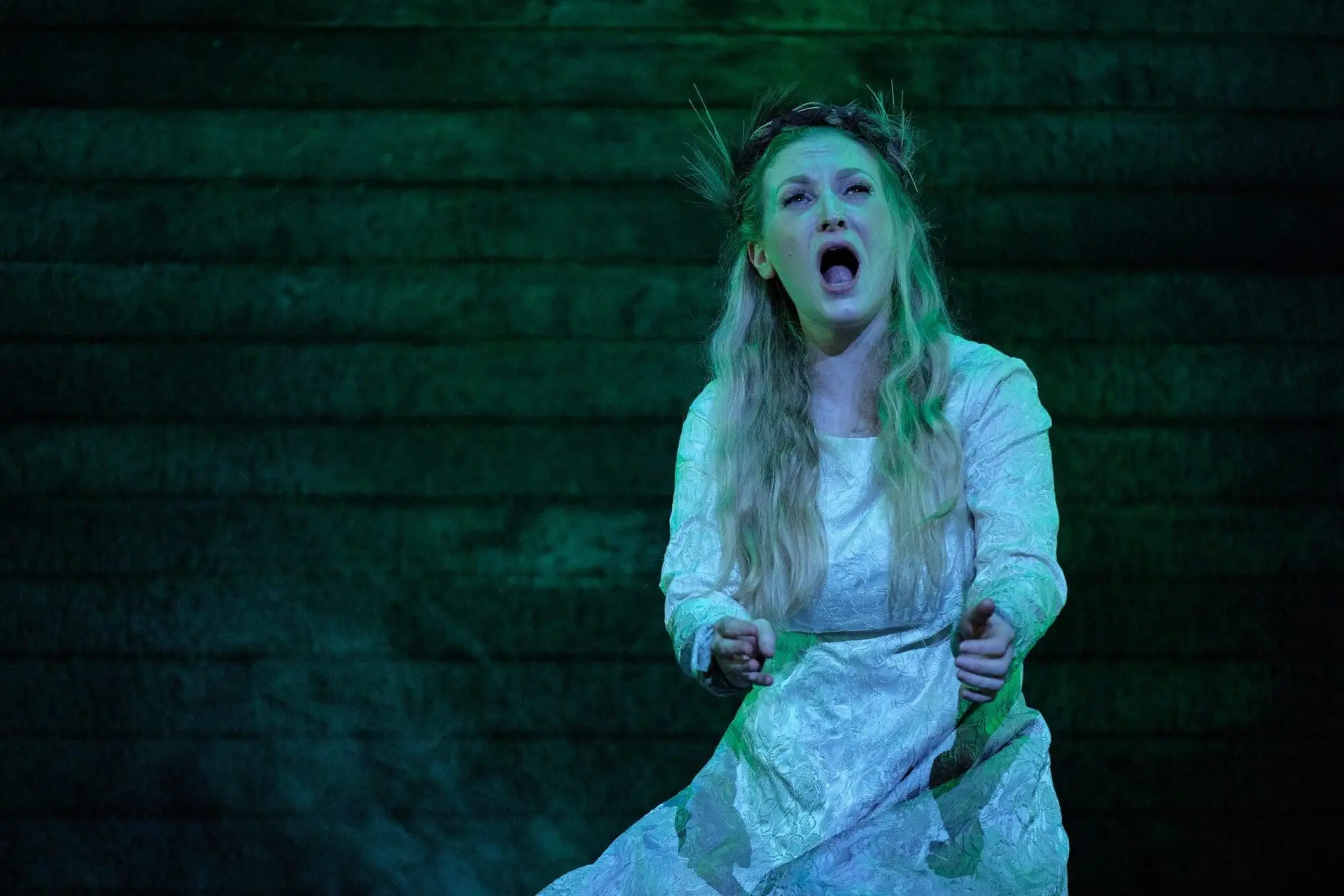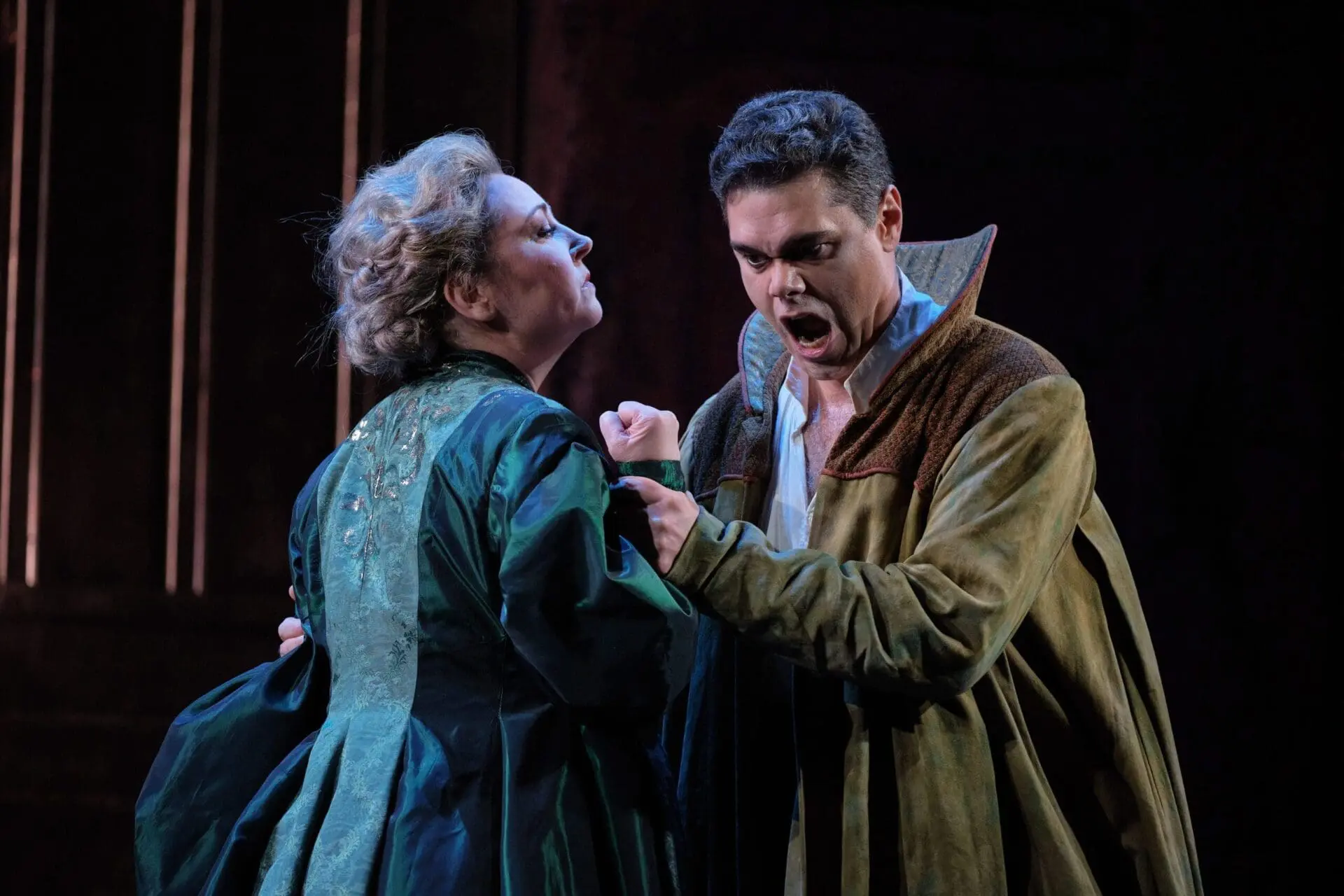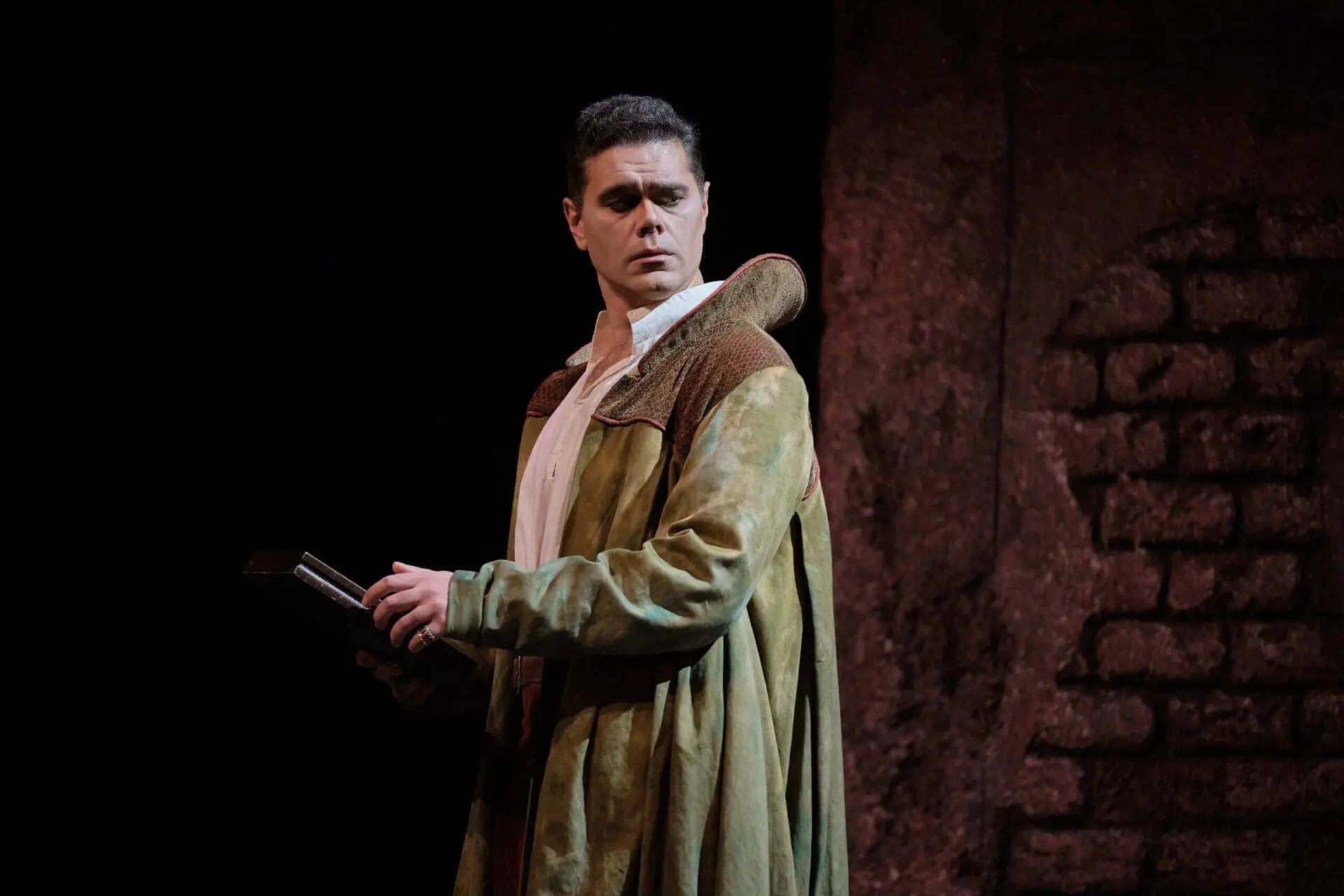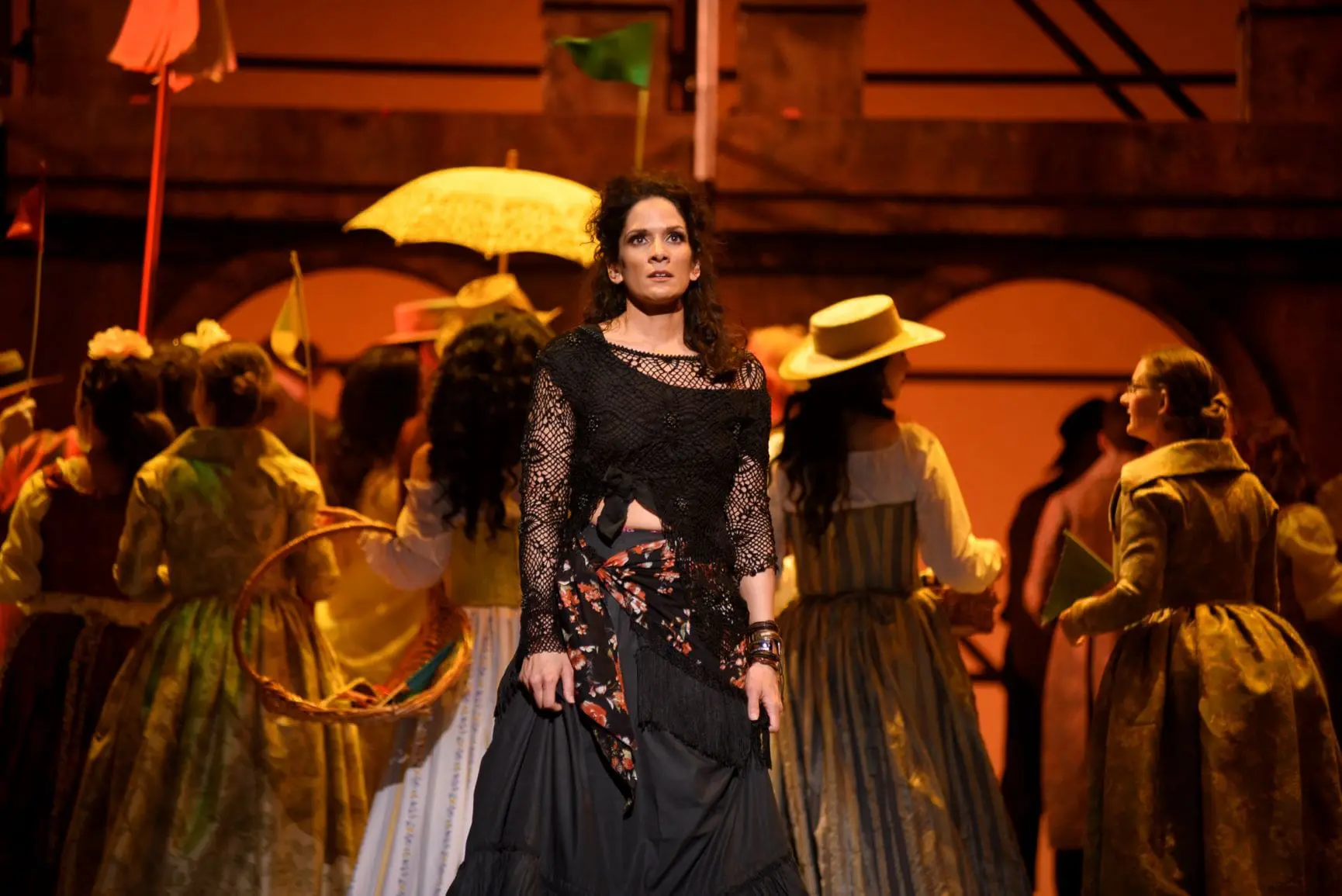Last Saturday, Ambroise Thomas’s Hamlet debuted at Opéra de Montréal in an original production with an almost all-Canadian cast.
Can you picture Hamlet as a French grand opera? Thomas’s 1868 adaptation, now seldom performed, walks a fine line between Shakespearean drama and operatic convention. Some of its overwrought moments and major plot changes (which I won’t spoil here) are frankly hard to pull off. But others are extremely effective.
The aesthetics of this production were austere and ominous, with looming brick set pieces and liberal amounts of stage fog. Visually, Sarah Balleux’s costumes were a highlight: dark colours for the chorus, standout colours for the principals, and cascades of gold leaf for nearly everyone but Hamlet, whose breeches, blouse, and cape signalled his refusal to play the courtly game.
Alain Gauthier’s staging verged on too austere, at least for my taste. If the chorus is singing about strewing flowers, I don’t want them to be motionless. If Horatio says his knees are giving way from fear, I don’t want him to just stand there. During the big finales, Hamlet’s histrionics took centre stage, which worked well, but the rest of the cast felt static, staying on the sidelines when I wanted to see them in the mix. The characters came vividly to life, though, in their solos and small ensemble numbers.
Of these, the mad scene alone was worth the price of admission. Soprano Sarah Dufresne was indescribably compelling as Ophélie. For an entire act, one fifth of the opera, she held the audience in her grasp with profound dramatic conviction and crisp, weightless, piercing coloratura. Her sincere, grounded performances in Ophélie’s previous scenes made the character’s death feel devastating.

Photo Credit: Vivien Gaumand
Soprano Sarah Dufresne as an “incredibly compelling” Ophélie
Baritone Elliot Madore committed fully to Hamlet’s contradictions – his indecision and his impulsivity, his brooding and his antic disposition. Madore’s strong, rich high notes and buzzing dramatic intensity were especially notable in his opening solo and his scenes with Gertrude, when Hamlet veers from bitterness into violence.
The two older leads were excellently matched: Karine Deshayes as Gertrude, with her regal bearing and warm, generous mezzo, and Nathan Berg as Claudius, with his commanding presence and rich, arresting bass-baritone. His aria, “Je t’implore, ô mon frère!” was a tour de force, simply and powerfully staged.
Although Thomas’s Hamlet focuses almost exclusively on the four main roles, the plot still relies heavily on supporting characters. Crucially, Alain Coulombe’s resonant low bass embodied the sinister majesty of the dead king, and Antoine Bélanger played Laërte as an upstanding and endearing older brother, executing his high-flung tenor arias with ease.
The Orchestre Métropolitain played admirably under Jacques Lacombe, although I suspect that some virtuosic passages and hard-to-coordinate recitatives will feel more relaxed in subsequent performances. Thomas’s score is gripping and atmospheric, with several captivating instrumental solos.
Opéra de Montréal has successfully staged an off-the-beaten-track adaptation of an enduringly beloved play, offered something special for both Anglophone and Francophone audiences, and gone out of their way to showcase some first-rate Canadian talent. I’d love to see future productions showcase some first-rate talent from women conductors or directors, too – there are none this season.
For now, though, I salute the work that went into mounting this new production. The standing ovation on opening night was well earned. Impressively, because this piece is so uncommon, every single singer was performing their role for the first time. With any luck, it won’t be their last.

Photo Credit: Vivien Gaumand
Elliot Madore interacting with Karine Deshayes as Gertrude in Opéra de Montréal’s Hamlet
Opera Canada depends on the generous contributions of its supporters to bring readers outstanding, in-depth coverage of opera in Canada and beyond. Please consider subscribing or donating today.













